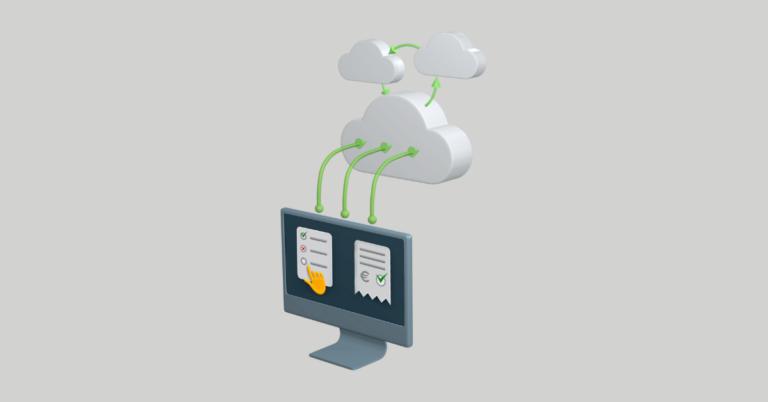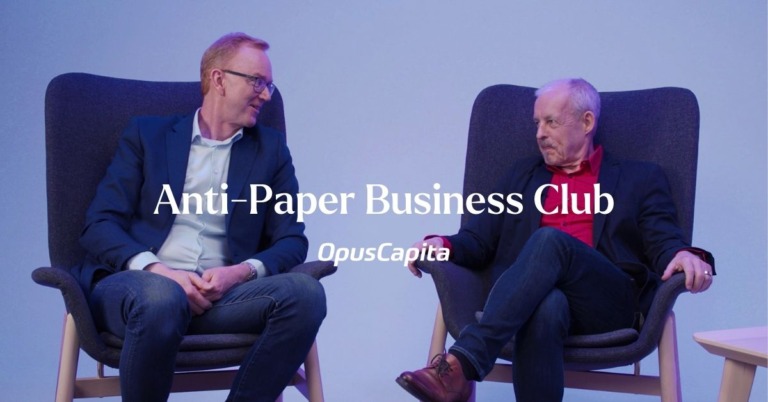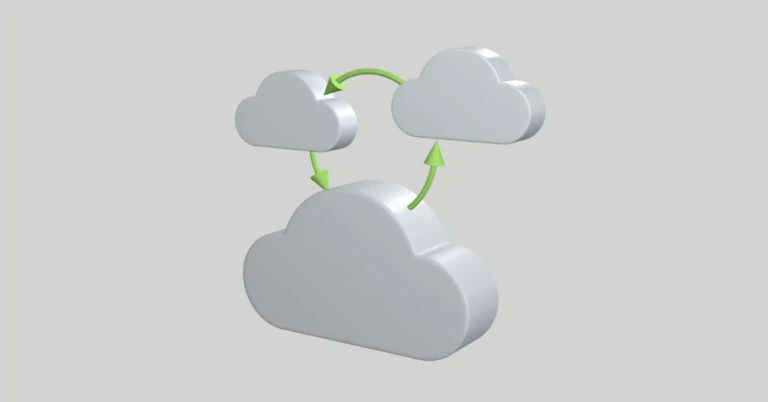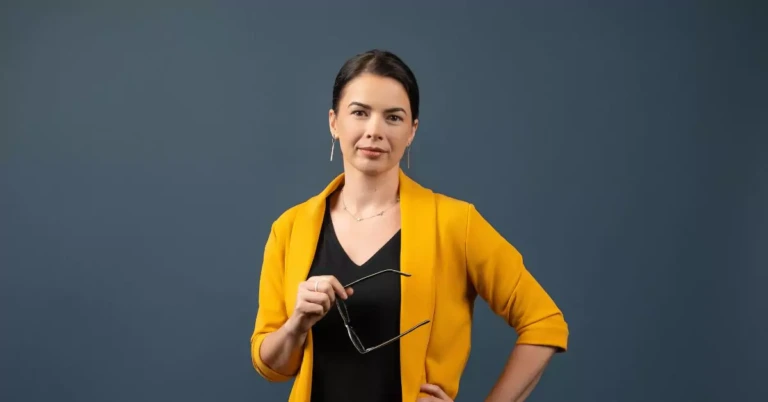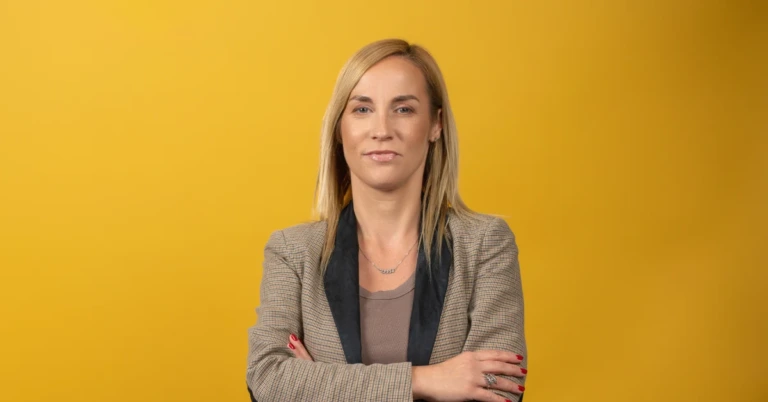
The exciting 20s of PEPPOL development
08.01.2020
Ahti Allikas
It’s January and I am excited to take a look ahead into what 2020 will hold in store for PEPPOL development because I honestly think that the developments which are about to happen are quite exciting.
In this blog, I will look at two key concerning PEPPOL developments and what they will mean. The first development is that PEPPOL is rebranding itself. The second development is that PEPPOL and the clearance model are moving closer together.
PEPPOL rebranding
Alright, I hear you, you are probably wondering why I talk about rebranding in my monthly blog but it is because I honestly believe this is really a milestone in the history of this organization. As PEPPOL enthusiasts know, originally the term PEPPOL stood for Pan-European Public Procurement Online. But since October 2019 this has changed and we now just talk about PEPPOL, as a thing instead of an acronym. The key here is that the words Europe and Public Procurement are being dropped because as we have covered on this blog before, multiple countries beyond Europe are using PEPPOL such as Singapore and other countries in South East Asia (I will get back to that later), Australia and New Zealand. In addition, the ongoing PEPPOL International Invoice project, which should support the issue of invoices in different tax regimes, and have its deliverables ready by October 2020 is another move toward the expansion of PEPPOL.
On top of dropping the acronym, PEPPOL is also boasting a new slogan to the world ‘the future is open’ – this is self-speaking of how PEPPOL sees the future between the businesses and message exchange – inclusivity is the future.
In addition to that, also other terminologies are changing and those changes go beyond semantics. Instead of ‘Access Points’ we’ll be soon talking about PEPPOL Service Providers. Although, this is not related to the rebranding project but to the new agreement structure. This means that the expectation from the organizations toward the service providers is growing. In the expanding market and ever-growing community of end users, it is crucial that we have better control over the quality of the messages exchanged in the network and this will become the responsibility of service providers at some point this year.
There is one more quite remarkable change coming up this year for the PEPPOL Service Providers. It is the mandatory support of AS4 (Applicability Statement 4, an open standard for the secure and payload-agnostic exchange of Business-to-business documents using Web services) in the PEPPOL Network. This will make PEPPOL compliant with the CEF eDelivery Network (Connecting Europe Facility) and bring the message exchange security of the network to the next level. As a matter of fact, we are also taking part in this development by participating in the CEF AS4EDI financing program.
Being the leader of the Service Provider Community in PEPPOL I am happy to see how those actions will strengthen the community.
PEPPOL to support clearance model (soon)
One of the things that always baffled me was the somewhat parallel development of national e-invoicing formats and infrastructure related to a national clearance model and, in parallel, PEPPOL to support international invoicing and interoperability between countries. Partially one can understand that because the driver for both has been different. We are talking about tax revenue vs process efficiency. However, they could work together perfectly. As a matter of fact, I raised this subject exactly a year ago.
Now, I am happy that it was decided by the PEPPOL Management team to move closer to accommodating countries that are implementing the clearance model. It was also announced to the public at the Singapore Exchange Summit in November 2019.
After all we could say that we are dealing with two sides of the same coin. As PEPPOL we care about transmitting messages such as invoices between buyers and suppliers keeping in mind the business interoperability. In the clearance model, the drive towards e-invoicing is driven by the tax authority which wants to close the VAT gap and ensure taxes are paid. Clearance models are mainly about invoice information exchange between suppliers and tax authorities. Process efficiency and tax collection are not mutually exclusive goals. That said, countries implementing the clearance model have somehow neglected the opportunities for process efficiency and the issues of interoperability between suppliers and buyers. PEPPOL is all about open interoperability and the clearance model is looking at closed national systems.
As many people have now understood that those are not separate issues but rather should be catered to in the same go, we have started to create a showcase. We have proposed that countries that are looking into possibilities to introduce the clearance model should at the same time introduce PEPPOL for B2B and B2G invoice exchange, and make sure the format in PEPPOL has the right formats for their tax authority. In this case, PEPPOL Service providers could act as trusted representatives of the Tax Authorities having the right to validate and issue invoices in that country. This will increase the efficiency of processes for the tax authorities as well as for the suppliers and buyers. What is really important – this will not isolate the country into a single system and businesses in that country will remain open to international interoperability as well.
It will be interesting to see how this will work in practice but I am confident that this year we will see the first country where the PEPPOL network works together with a clearance model.
All in all, 2020 will be an exciting year for PEPPOL and electronic messaging and I look forward to seeing how we are working to make our core business processes more efficient every day.

Ahti Allikas has been active in the e-invoicing industry since the year 2000. He currently works as Head of Partners and Networks at OpusCapita, and is responsible for the development of the e-invoicing ecosystem. Ahti is a member of the executive committee of the European E-invoicing Service Providers Association (EESPA), member of management committee of the OpenPeppol Association (PEPPOL) and also member of E-Invoicing expert group in the European Multi-Stakeholder Forum on E-Invoicing (EMSFEI).
On the pulse of interoperability development
OpusCapita actively participates in the international development of network interoperability, and we’re a member in international communities such as PEPPOL, EESPA, CEF and FeRD.
